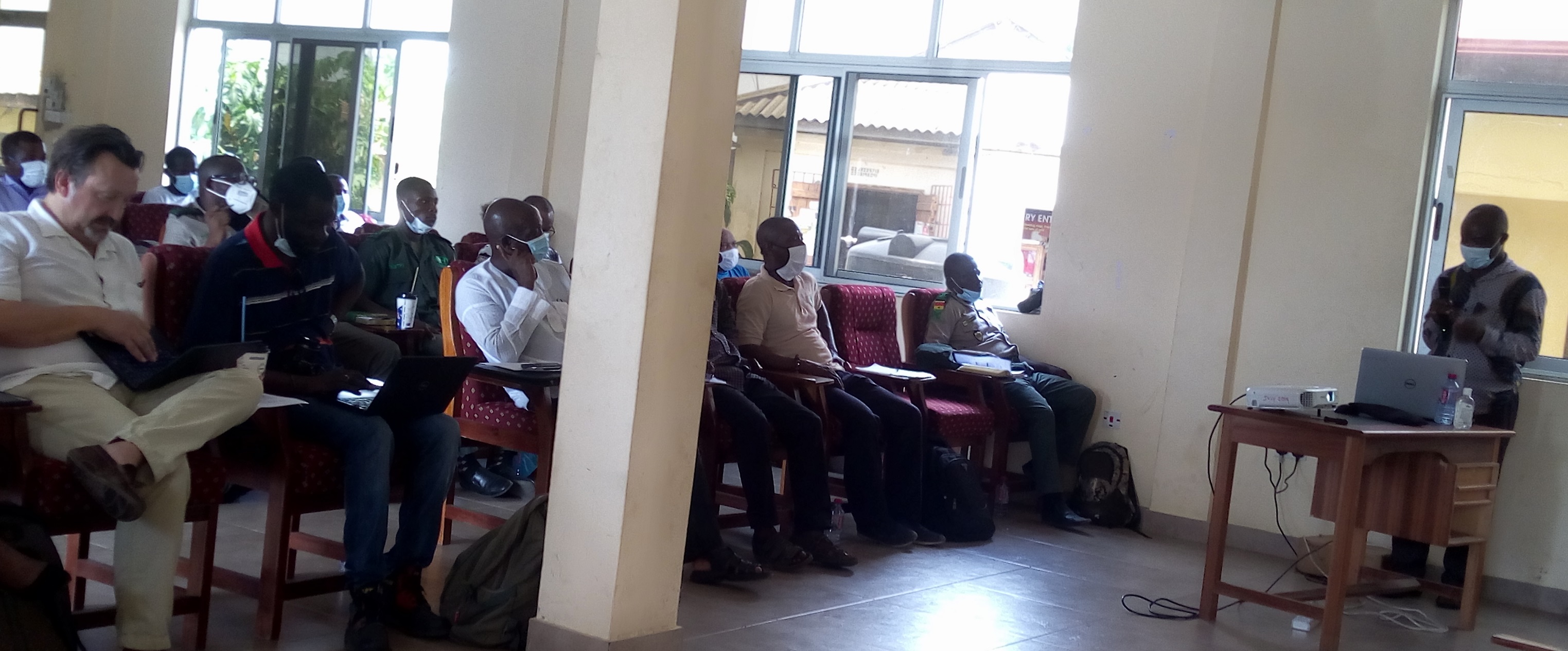
A validation workshop was held to present and validate findings from the IUCN's Regional Marine and Coastal Program (MACO) commissioned ‘Environmental, socio-economic and cultural situation diagnostic analysis of the Songor and Keta Lagoons mangrove Landscape, Ghana’ In his welcome statement, the DCE reiterated the importance of coastal ecosystems including mangrove forests, the threats and implications of their degradation and called for concerted efforts to conserve them. He also enumerated some tourist attractions in the District including the Chill hospitality centre, the slave market among others.
The report on the findings of the study was presented by Dr. Opoku Pabi, a senior research fellow at the Institute for Environment and Sanitation Studies (IESS) of the University of Ghana who also lead the consultant team in conducting the diagnostic study. He indicated that the study applied a variety of methods including desktop review of literature, focus group discussions, expert interviews, field observations, remote sensing and GIS applications, stakeholder mapping and data collection using GPS, etc. with the objective of identifying key conservation issues, inform project objective setting, choice of priority interventions, development of monitoring and evaluation instruments, identify relevant stakeholders, and actors who would collaborate and participate in the design and implementation of the various interventions for enhanced synergy and the project success.
He highlighted the findings which include the high dependency and increasing decline of mangroves across the landscapes, the challenges for conservation and outlined recommended approaches for communal involvement towards enhancing the effectiveness of the conservation efforts of the IUCN. His presentation was followed by interactions to allow participants ask questions, comments and suggestions to be incorporated into the final report to the IUCN.
The Workshop, held on February 16 at the premises of the Anloga District Assembly was attended by the District Chief Executive (DCE), Hon. Seth Yormewu and chaired by the Head, Technology and Innovation Unit of the Environmental Protection Agency (EPA), Dr. Simon Sovoe. Other participants include representatives of the IUCN, Wildlife Division (WD) of the Forestry Commission, the Development Institute, Community Resource Management Area (CREMA) groups, and mangrove farmers from Anyanui and surrounding areas in the Anloga District.
To reverse the degradative trends and restore a resilient mangrove system along the entire West African coast, the International Union of Conservation of Nature (IUCN) has commissioned a four (4)-year project: "Management of Mangrove Forests from Senegal to Benin", with funding from the European Union. It aims to achieve integrated protection of mangrove ecosystems in West Africa, and strengthen resilience to climate change. It is a multi-stakeholder project led by IUCN, in consortium with Wetlands International Africa and the 5Deltas collective. In Ghana, the proposed area of intervention is the Songor-Keta Lagoon landscape. As part of the project implementation launch, IUCN's Regional Marine and Coastal Program (MACO) commissioned a diagnosis of the environmental, socio-economic and cultural studies of the Songor and Keta lagoons landscape. The purpose is to identify key conservation issues, inform project objective setting, choice of priority interventions, development of monitoring and evaluation instruments, identify relevant stakeholders, and actors who would collaborate and participate in the design and implementation of the various interventions for enhanced synergy and the project success.
